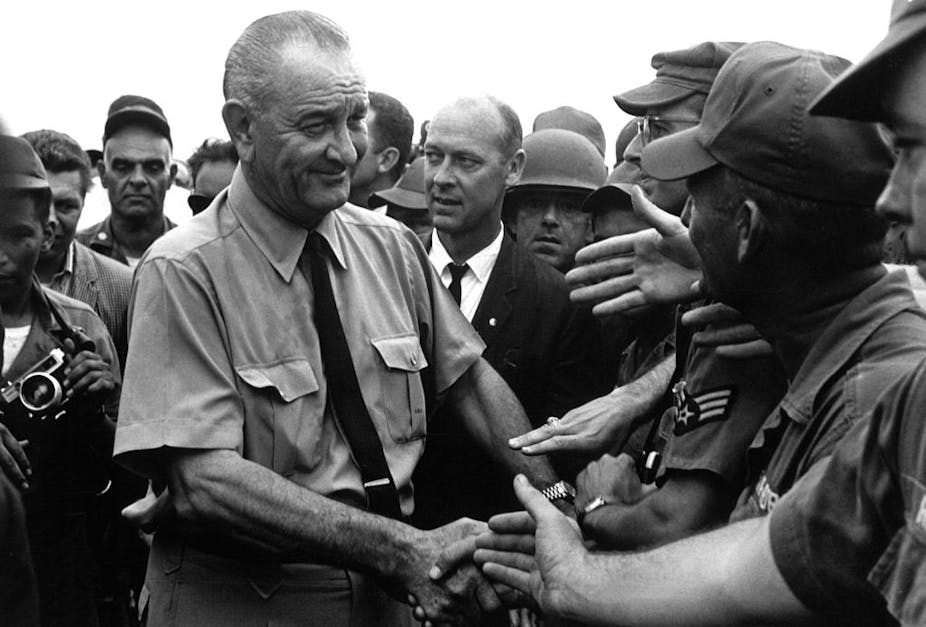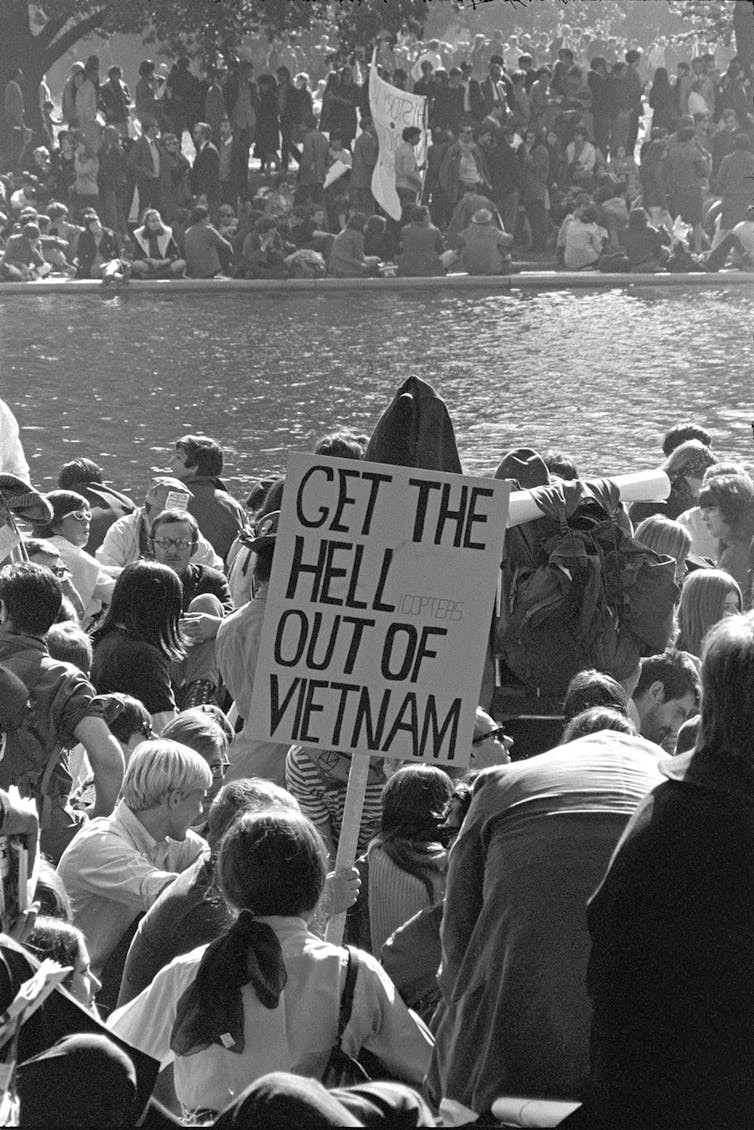
Randall B Woods ne travaille pas, ne conseille pas, ne possède pas de parts, ne reçoit pas de fonds d'une organisation qui pourrait tirer profit de cet article, et n'a déclaré aucune autre affiliation que son organisme de recherche.
Voir les partenaires de The Conversation France
Fifty years ago, during the first six months of 1965, Lyndon Johnson made the decision to Americanize the conflict in Vietnam.
His vice-president, Hubert Humphrey advised him against it. So did his long time mentor and friend, Senator Richard Russell of Georgia. Inside the administration, Undersecretary of State George Ball also made the case for restraint.
The war, they said, would have to be limited in scope. The job, therefore, couldn’t be finished which would mean an open-ended commitment.
Communist China made it clear that it would not permit an invasion of North Vietnam. For fear of provoking an all-out war with the communist superpowers, the Johnson administration would forswear not only an invasion but also any attempts to sponsor an anti-communist insurgency in the North.
The state of South Vietnam was in many ways artificial. Instead of a nation with a unique history, South Vietnam was a political compromise, the creation of the Great Powers (the US, the Soviet Union, China, France and the United Kingdom) at the 1954 Geneva Conference.
The flag of Vietnamese nationalism had been captured by the Communist leader Ho Chi Minh and his followers in the north: it would not be easily wrested from them.
Indeed, George Ball predicted that the United States would eventually have to put half a million troops in Vietnam, a prediction which Secretary of Defense Robert McNamara vehemently rejected.
During the intense debated that occurred within the foreign policy establishment in the spring and summer of 1965, Johnson himself was frequently the leading dove.
In conversation with Dick Russell, he said,
“I don’t think the people of the country know much about Vietnam and I think they care a hell of lot less.”

In the end, Johnson understood.
At a post-retirement dinner in New York with McNamara, Bundy, and other former aides in attendance, LBJ accepted full responsibility. Looking at his former defense chief and national security adviser, he said,
“You know, I want you fellows to know everything that went wrong in Vietnam that’s being criticized, it was my decision, not yours…”
What if Johnson had heeded Humphrey’s advice and his own doubts?
South Vietnam would have fallen to the communists much sooner than it did, saving thousands of American and hundreds of thousands of Vietnamese lives.
But segregationists and red-baiters might well have blocked the civil rights achievements of the Great Society, prompting racial conflict at home that would have made Detroit seem like a picnic.
There are no easy choices when you are chief executive of a nation which is both a democracy and the most powerful nation on earth.